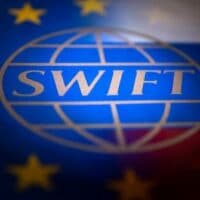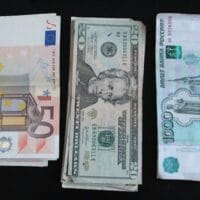-
Naïve questions about Russia’s war economy
“Tell me, please, Grandpa,” the little boy asked the Red Army veteran, “what does a war economy mean and how is it different from now?”
-
Beyond Eurocentrism
If you really want decolonisation, go beyond cultural criticism to the deep structural insights of economist Samir Amin.
-
Inflation and the case of the missing profits
Everyone knows that inflation in the United States is increasing. Anyone who has read the news, or for that matter has gone shopping lately. Prices are rising at the fastest rate in decades. The Consumer Price Index rose 8.6 percent in March, which is the highest rate of increase since December 1981 (when it was 8.9 percent).
-
Russia’s Sergey Glazyev introduces the new global financial system
The world’s new monetary system, underpinned by a digital currency, will be backed by a basket of new foreign currencies and natural resources. And it will liberate the Global South from both western debt and IMF-induced austerity.
-
Venezuela’s economy will grow 20% in 2022, despite illegal U.S. sanctions, predicts Western bank
Major Switzerland-based bank Credit Suisse forecasts Venezuela’s real GDP growth to be 20% in 2022 and 8% in 2023. This is despite an illegal U.S. blockade, which starved the government of 99% of its revenue, according to the top UN expert on sanctions.
-
Sanctions and the World Economic Order: a conversation with Prabhat Patnaik
A distinguished Marxist economist reflects on the impact of imperialist blockade mechanisms.
-
Weimar Futurities with Engelbert Stockhammer
Engelbert Stockhammer joins Money on the Left to discuss the political and economic debates that shaped and ultimately devastated Weimar-era Germany. Professor Stockhammer is professor of political economy in the department of European and International Studies at King’s College London and has published widely on financial instability and Post-Keynesian economics.
-
China’s diplomacy on a roll in Kabul
Last Thursday, the Acting Foreign Minister of the Taliban interim government Amir Khan Muttaqi made a stunning remark to greet the visiting Chinese Councilor and Foreign Minister Wang Yi in Kabul when he said, “This is the most important high-level delegation received by Afghanistan.”
-
Ukraine and the Global economic war: barbarism or civilisation?
DOES the Ukraine war and the action of the U.S., EU, and the UK spell the end of the dollar as the world’s reserve currency? Even if the peace talks between Russia and Ukraine reach a 15-point peace plan, as Financial Times has reported, the fallout for the dollar still remains.
-
The ECASH Act with Rohan Grey
In this special episode, Rohan Grey (@rohangrey) joins Billy Saas (@billysaas) and Maxximilian Seijo (@MaxSeijo) to discuss the “ECASH” or “Electronic Currency and Secure Hardware” Act. Introduced by Rep. Stephen Lynch (MA-08), Chair of the House Committee on Financial Services’ Task Force on Financial Technology, and based on Grey’s research on electronic currency, the ECASH Act directs the Secretary of the Treasury to develop and pilot digital dollar technologies that replicate the privacy-respecting features of physical cash.
-
The irony of sanctions against Russia
The juggling which U.S. imperialism has to do to maintain its hegemony becomes more bizarre by the day. First, it kept needling Russia (“provoking the bear”) “on behalf of the western alliance” by expanding NATO to its very borders, knowing full well that Ukraine’s joining NATO would be totally unacceptable to Russia.
-
Opposition political parties banned in Ukraine and ‘unified information policy’ imposed
Zelensky justified the ban on mostly left and anti-NATO parties in the country by claiming that they had alleged links with Russia, despite the fact that most of these parties have publicly opposed Russian intervention.
-
Venezuela defines conditions for sale of oil to U.S.
The government of the Bolivarian Republic of Venezuela maintained its willingness to resume its oil trade with countries such as the United States, and even those that belong to the European Union, but it has clearly outlined the diplomatic and political conditions necessary for any exchange to take place.
-
‘Student debt hurts the economy and cancellation will improve lives’
CounterSpin interview with Braxton Brewington on student loan debt.
-
Sanctions within a regime of neo-liberalism
Before joining the neo-liberal order, India used to have “rupee payment arrangements” with the Soviet Union and Eastern European socialist countries under which the main international reserve currency, the U.S. dollar, was used neither for settling transactions nor even as the unit of account in terms of which the trade-related transactions were denominated.
-
National Endowment for Democracy deletes records of funding projects in Ukraine
Deletion needed to preserve big lie of an unprovoked Russian invasion
-
Burning Globalist structures to save the Globalist ‘Liberal Order’
Biden, finally, has his foreign policy ‘success’: Europe is walling itself off from Russia, China, and the emerging integrated Asian market.
-
America shoots its own dollar empire in economic attack on Russia
Empires often follow the course of a Greek tragedy, bringing about precisely the fate that they sought to avoid. That certainly is the case with the American Empire as it dismantles itself in not-so-slow motion.
-
What is the Fetishism of Commodities?
Towards the end of the first chapter of Das Kapital, after having established the validity of the labor theory of value, Marx has a section on the “Fetishism of Commodities”.
-
Middle East: Ukraine conflict sparks concerns over food supply
On Feb. 24, the day when Russia launched the military operation, U.S. wheat and corn futures rose by their daily trading limits while soybeans rose to the highest since 2012.



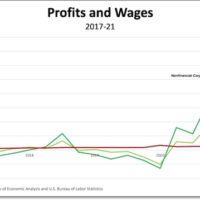
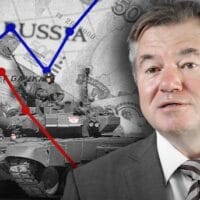




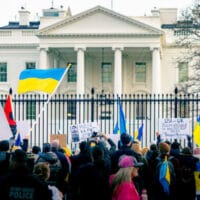
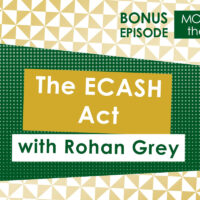
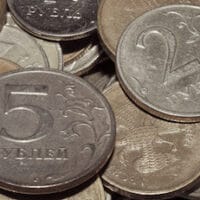



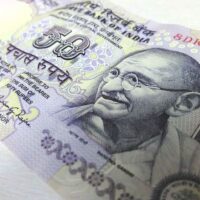
![[Source: ned.org]](https://mronline.org/wp-content/uploads/2022/03/solidarity-with-Ukraine-copy-200x200.jpg)
